[REVIEW] 'The Last of Us' Pilot
Whether you've played video games, or have never touched a controller, 'The Last of Us' on HBO is exceptional television that is worth your time.
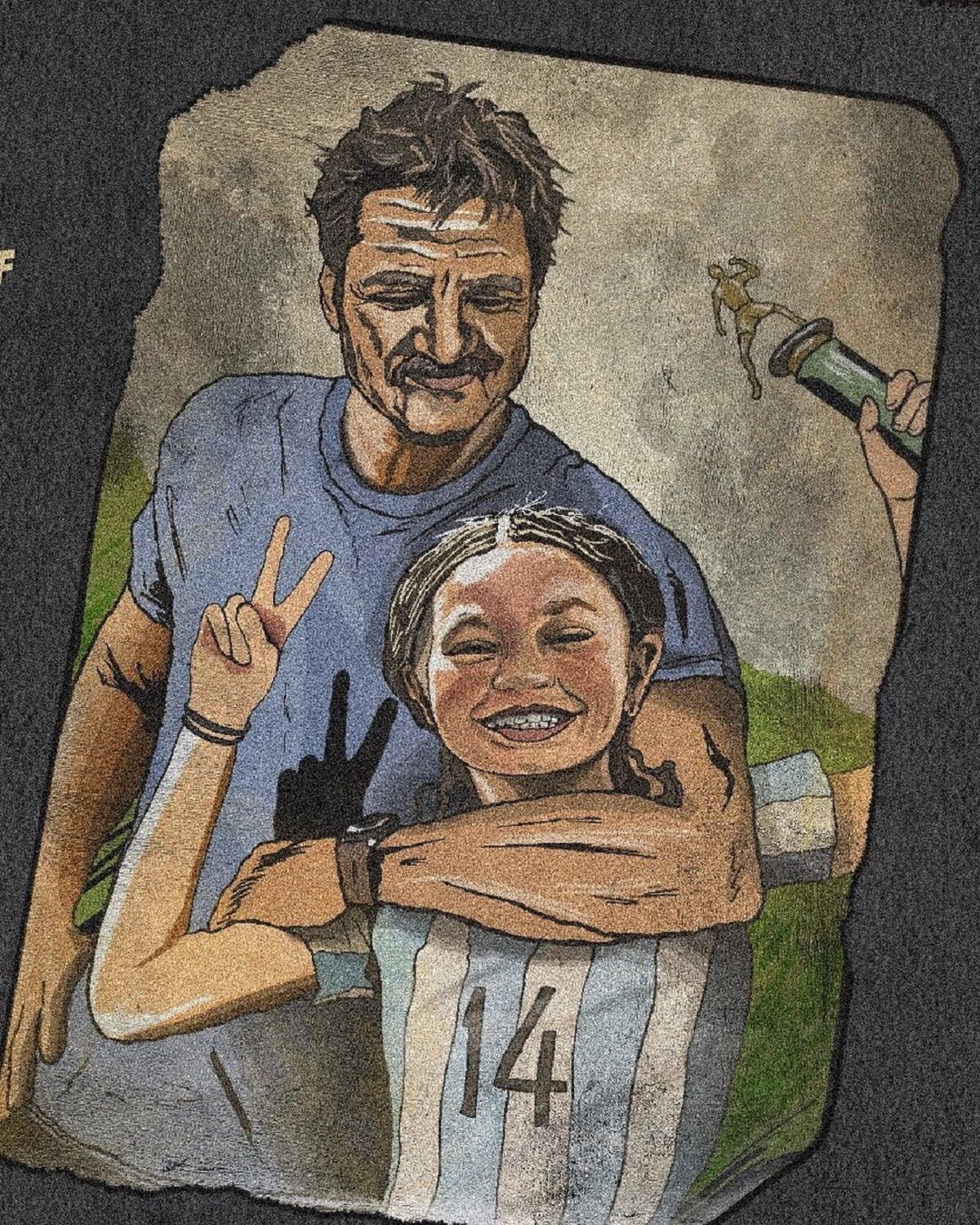
This is the last issue of "Teresa & ____*" that will be this frequent and random--a wrap-up to my TLOU Premiere countdown (or count-up, or whatever you wanna call it). After all that hype, I had to share what I thought of the show, didn't I? And just in time for you to find out what 18 million people already know after two episodes...
And now, we're traveling to the intersection of Teresa & TV --
SPOILER-FREE REVIEW OF THE LAST OF US (HBO)!
The Last of Us (HBO)
Based on the PlayStation Studios videogame written by Neil Druckmann
Created for television by: Craig Mazin & Neil Druckmann
Episode: S1E1 - "When You're Lost in the Darkness" (Pilot)
Written & Directed by: Craig Mazin
Boiled down to a logline, The Last of Us is the story of Joel Miller, a smuggler hired to transport a 14-year-old girl named Ellie Williams across the U.S. in a world suffering from a devastating cordyceps infection that has wiped out most of the people on Earth.
While those richly drawn characters are the heart and soul of this story, The Last of Us is also the larger story of the world; an alternate history of the human beings who managed to survive a devastating global pandemic and how they did it. It's the story of the last of us.
'Us' is the key word. And that word is why the HBO adaptation of the hit video game series works so beautifully. While gameplay is a very individual experience (even when playing online with friends), the show is adept at making the story resonant to us. All of us.
One of the most successful divergences the HBO adaptation makes from the game is in an opening flashback that provides broader context to enhance the viewer's experience whether they've played the games or not. In an awesome (if brief) appearance, John Hannah plays Dr. Neuman, a scientist being interviewed on a 1960s talk show about the possibility of a future global pandemic. At first, the conversation seems eerily familiar, what with us currently going through a global pandemic of our own.
However, Dr. Neuman's concerns have nothing to do with a viral pandemic. Those are "easy." We've had viral pandemics before, will likely have them again, and while they each come with plenty of trauma, they are not the civilization-crushing events we might expect. The things we really have to worry about are fungal infections. That might sound bonkers, but fungal infections are more insidious, and can cause harm beyond that caused to its host.
Dr. Neuman provides exposition (via funny banter, which demonstrates Mazin's cred as a comedy writer pre-Chernobyl) teaching us that, while fungal infections of a certain type don't affect humans (yet), we see how they affect ants: controlling the ant's brain and keeping the body just alive enough to be able to puppet the host and continue to feed, spreading itself to others. If fungus evolves to a point that it can affect humans in a similar way, as Dr. Neuman says, "We lose."
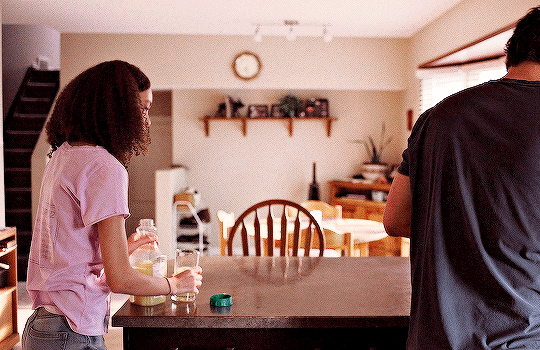
Cut to 2003, when we meet Joel Miller (Pedro Pascal), in yet another change from the game. The game opens in 2013, which would've been "present day" when the game was released, followed by a 20-year time jump, putting the main events of the game "in the future."
The show wisely sets the initial infection in 2003, so that when we jump ahead twenty years, we're in our present day, in an alternate world. This, along with the talk show opening, makes this story inescapably relevant to us, removing any distance between our world and theirs before introducing us to people we're gonna start to care about.
The Joel Miller of the show starts out as a blue-collar, single dad who works construction in Austin, TX along with his brother, Tommy (played with charm and heart by Gabriel Luna). Joel and his daughter, Sarah (Nico Parker), have a strong bond and a snarky, humorous rapport that allows the viewer to become immediately invested in their relationship. While players of the game have met Sarah before (and know what happens in the first part of the game), the Sarah of the game was nowhere near as fully fleshed-out a person. Though the game opens with gameplay as Sarah, she's ultimately a device to move Joel's story forward.
The Sarah of the show is so much more. The nature of this medium allows us to spend more time with her, so we get a stronger sense of who she is. She's kind, volunteering to spend time with the elderly couple next door regularly; she's funny; she's thoughtful. She's both smart enough to recognize when something is off, and young and naïve enough to deflect obvious signs of danger when it threatens her worldview in a scary way.
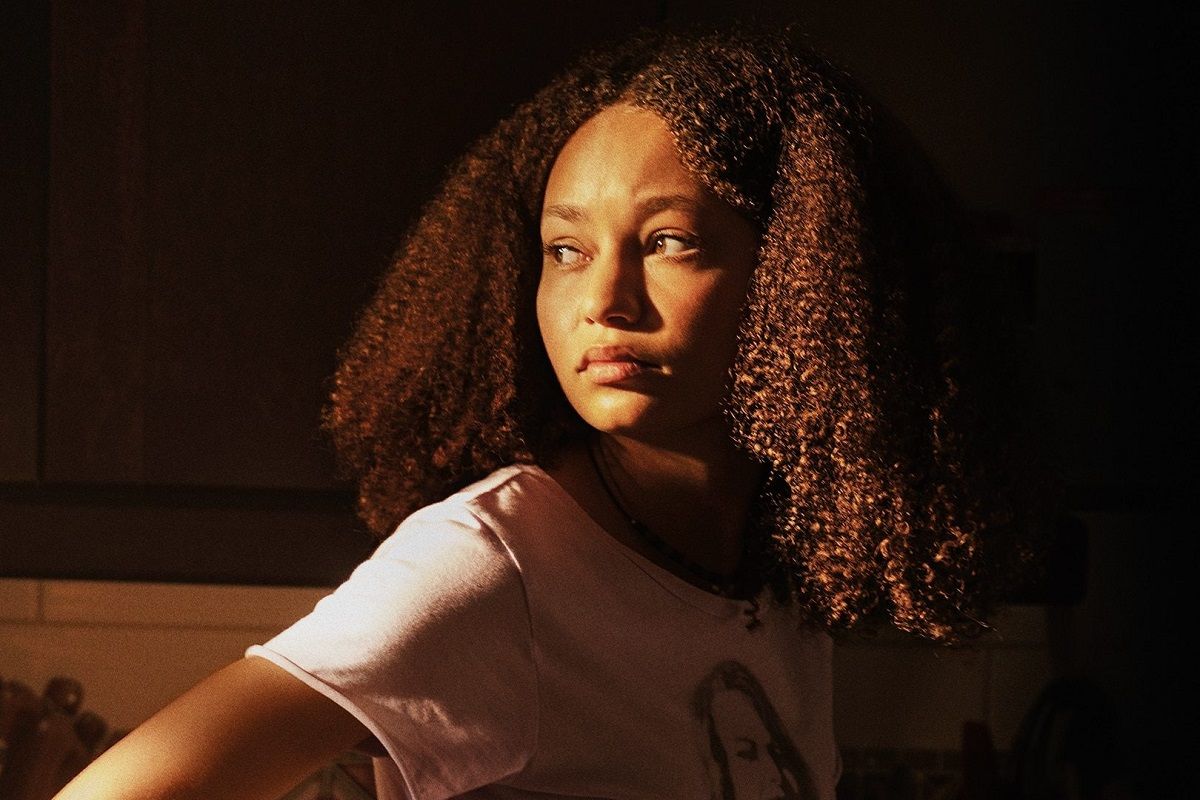
I have to take a moment to focus on Nico Parker's wonderful performance, as this is likely the only episode in which she'll appear (unless other things are changed/added down the line). Parker manages to give us a thoroughly lived-in human being in a heartrending performance that totals maybe half an hour of screen time--not an easy thing. While the usual racists came out of the woodwork bemoaning Parker's casting (she's Black and the Sarah of the game is white and blonde), she provided more in her performance than the game offered.
This is generally something the show does really well. Everything that's been changed from the source material adds to the story, making it more relevant to the viewer, adding context, or providing important character insight that enriches their evolution and relationships. Even changes like adding tentacle-like tendrils to people's mouths when they become infected (inspired by jellyfish stings, apparently) instead of incorporating the spores from the game makes the situation feel that much more intimate and tense by forcing everything into close quarters. You have to get bitten. Something needs to attach itself to you. It's invasive. This being an infection that controls a person's behavior to the point that they're capable of savage, single-minded violence, the possibility of transmission is high. That's frightening; something a mask of any type wouldn't prevent.
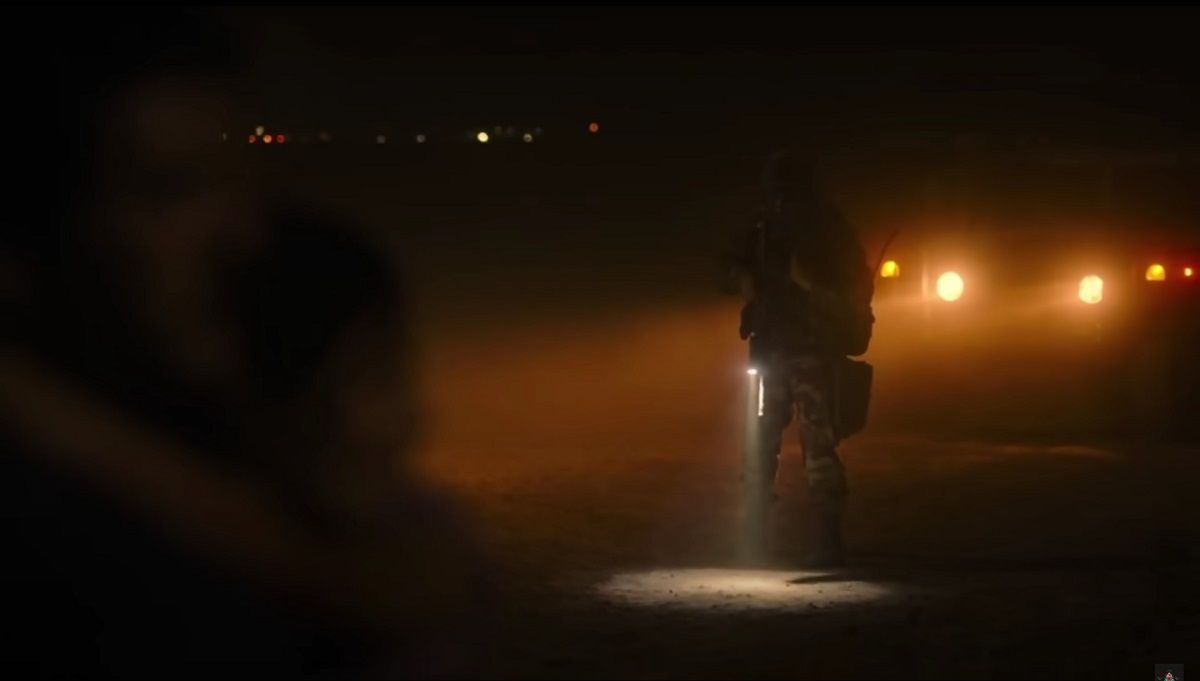
I've been a fan of Craig Mazin's for a long time, both because of his screenwriting, and because of Scriptnotes, "a podcast about screenwriting and things that are interesting to screenwriters" he co-hosts with John August. So, I knew even before HBOs TLOU was announced that he was a huge fan of the games. Once I heard he'd be the one adapting the show, I knew we were in good hands. Mazin knows how effective, compelling stories work. More importantly, he's a seemingly kind, insightful human who knows how other humans work. That might seem like an obvious trait for a writer to have, but you'd be surprised how many writers prioritize plot and "cool-looking things happening" above characters and their emotional journeys.
Both as the show's writer/creator, and as the director of this pilot, Mazin homes in on exactly where each character's emotional needs meet the obstacles in the world and holds us there, ratcheting up unexpectedly claustrophobic tension that's delightfully uncomfortable, so it's impossible for the viewer to feel removed from what's going on.
I also have to mention the awesomeness of game creator (and co-showrunner), Neil Druckmann. He was already responsible for one of the best narrative experiences in video games when he created TLOU at Naughty Dog. Now, it's clear that he and Mazin are perfect partners in bringing this story into a different medium. Various companies had approached Druckmann over the years to adapt the games as a film, but none of the approaches ever felt right to him. Druckmann's first wise decision, then, was holding out for exactly the right "in" for an adaptation. It's always a bit difficult or weird, even under the best circumstances, to watch someone else play in your sandbox, but having watched the pilot and listened to the first episode of the official HBO companion podcast (hosted by Troy Baker, the original voice of Joel, and which I highly recommend), Druckmann has known when to fight for something to stay, and when the stronger choice (or a new, exciting opportunity) in the new medium is to make a change.
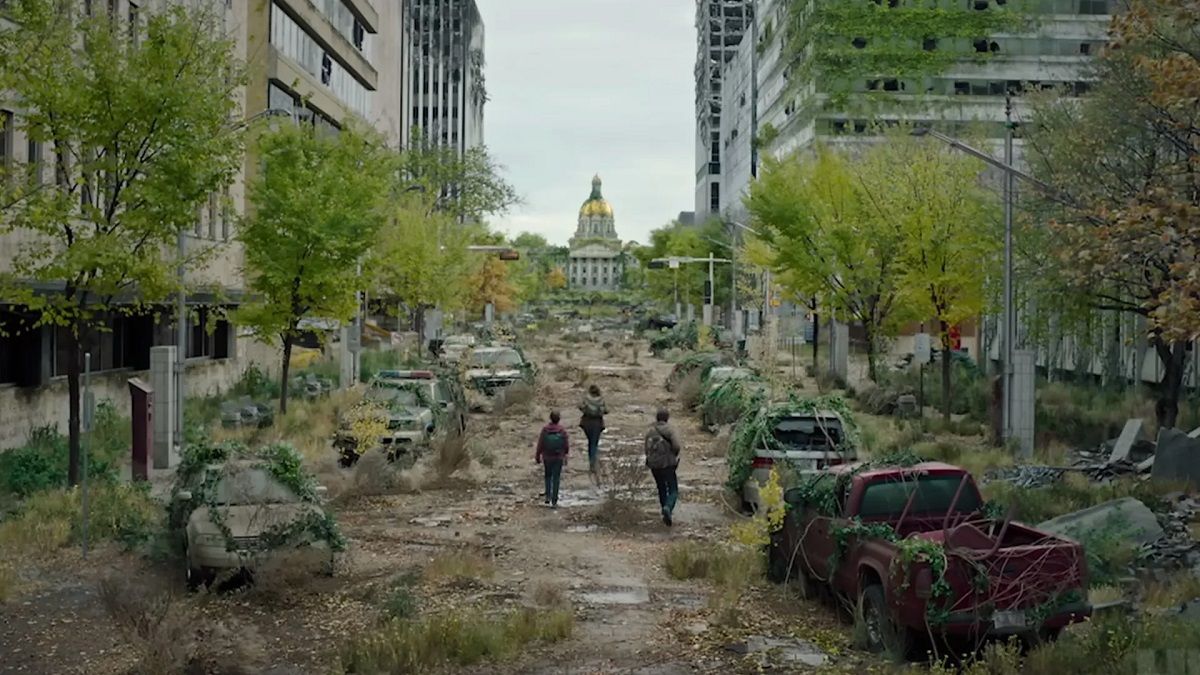
Changes to the nature of the cordyceps infection aside, one of the ways in which the show is remarkably faithful to the game is in the look and feel of the world. Looking at the show's IMDb crew page, you'll see that the crew is enormous, and each of those people has managed to create a show that, shot for shot, looks like it's made up of stills from the game. This is a good thing, as the artwork in the game is gorgeous. Production designer John Paino, along with everyone involved in the design, locations, hair and make-up, costumes, SFX, and VFX on this show deserve huge amounts of praise for contributing to the thematic and emotional resonance of this story at such a high level through their respective crafts.
However, the most jaw-dropping special effect in this series is its cast. As intense as the game often felt, watching the story's events unfold for actual flesh-and-blood people makes the story so much more harrowing, and it's the performances that truly sell the world and compel our emotional investment.
Anna Torv as Tess and Merle Dandridge as Marlene (the only cast member to reprise their role from the original game!) are standouts along with Parker, each of them delivering female characters that are refreshingly unfamiliar.
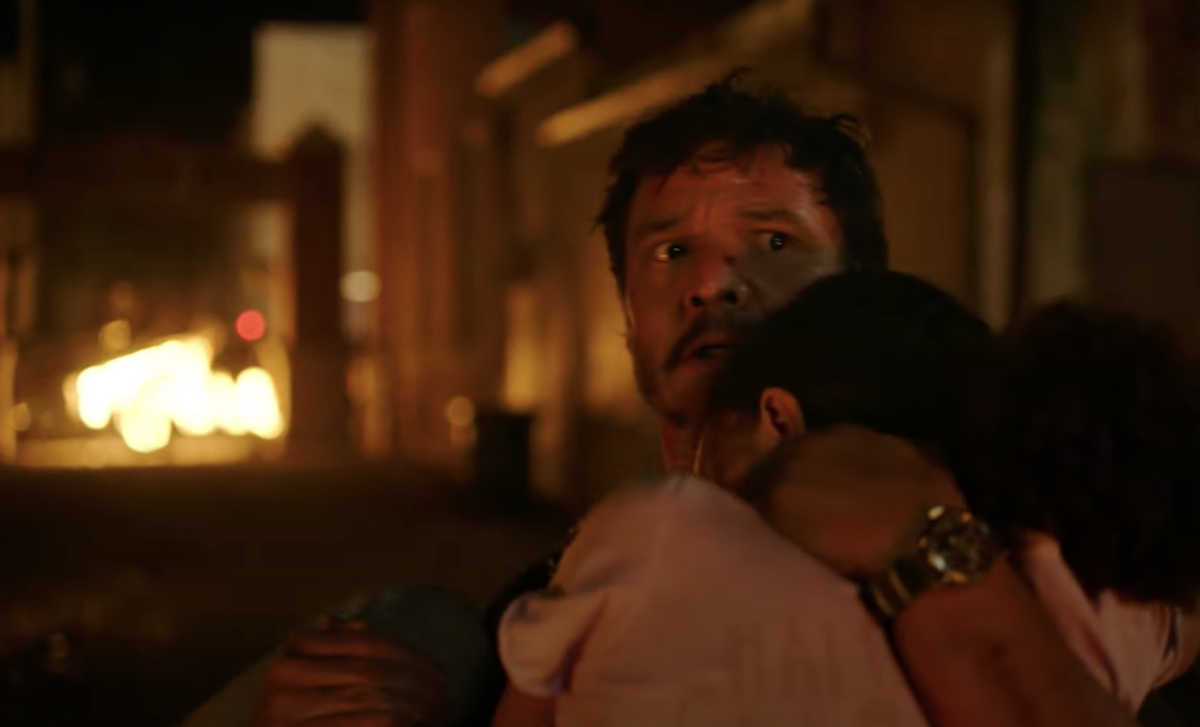
Pedro Pascal is heartbreaking as Joel, and while I've loved his work in so many other projects, it's in this role that we see the full range of what he's capable of as an actor. His Joel is equal parts simmering violence and vulnerable softness. It's amazing to watch Pascal dance between the two, going from brutally pummeling someone to death one minute to looking at someone he loves with doe-eyed fear the next. He imbues the role with a lovely, nuanced version of masculinity that we need to see more of on-screen.
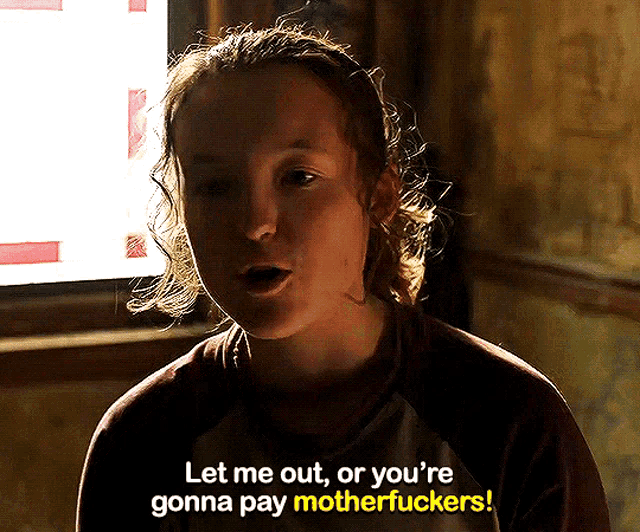
Equally brilliant is Bella Ramsey in the all-important role of Ellie Williams. [NOTE: Ramsey is non-binary and uses all pronouns. I'll use they/them when referring to Ramsey and she/her when referring to Ellie] They, like Pascal, bring nuance and a deep humanity to their role while performing a balancing act between caustic, aggressive snark and a child's vulnerability. In a tiny, disturbing moment in the pilot, after Joel has defended her by pummeling someone to death, Ellie looks over at him in awe and there's a hint of a smile. In sharp contrast to Sarah crying after watching her father kill, Ellie loves it. After all, in her 14 years on the planet--all of them post-apocalypse--she's become someone who can brutally knife someone at the drop of a hat. Ellie sees a kindred spirit in Joel. And yet there are other moments when it's clear that Ellie is absolutely still a child, and Ramsey shines in these moments, too. They inspire both our instincts to protect Ellie and our instincts to defend ourselves against Ellie in a performance that keeps us leaning forward.
Watching Pascal and Ramsey together is such joy. In the game, Joel and Ellie are understandably wary of each other. In this series, Joel and Ellie actively hate each other at first. Pascal and Ramsey completely lean into it, and it's like watching fireworks. Not only are they a perfect match for the material, but they're a perfect match for each other.
Whether you've played video games in the series, or have never touched a PlayStation controller, The Last of Us on HBO is exceptional television that is worth your time.
-- New episodes of The Last of Us drop Sundays at 9PM ET / 6PM PT on HBO and HBO Max [and there WILL be a second season!]

